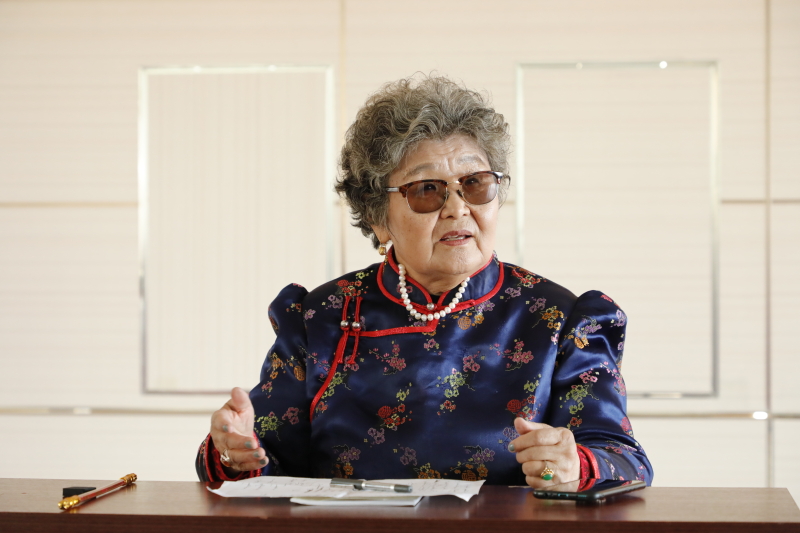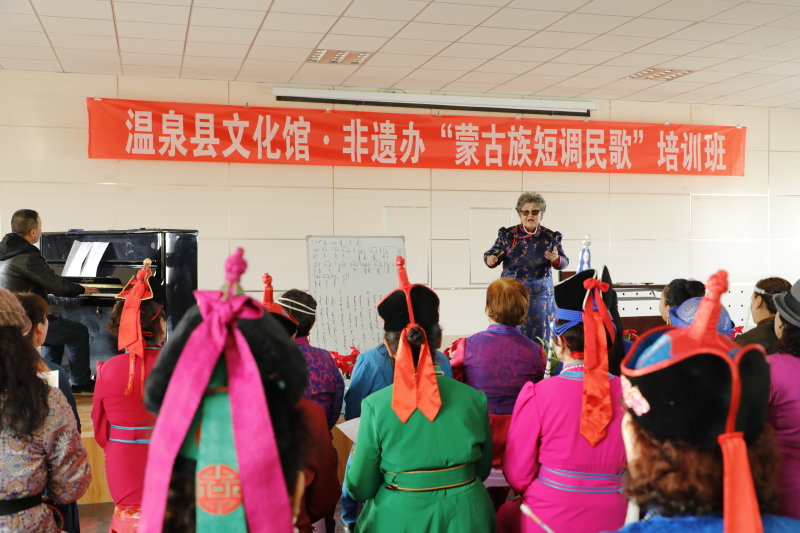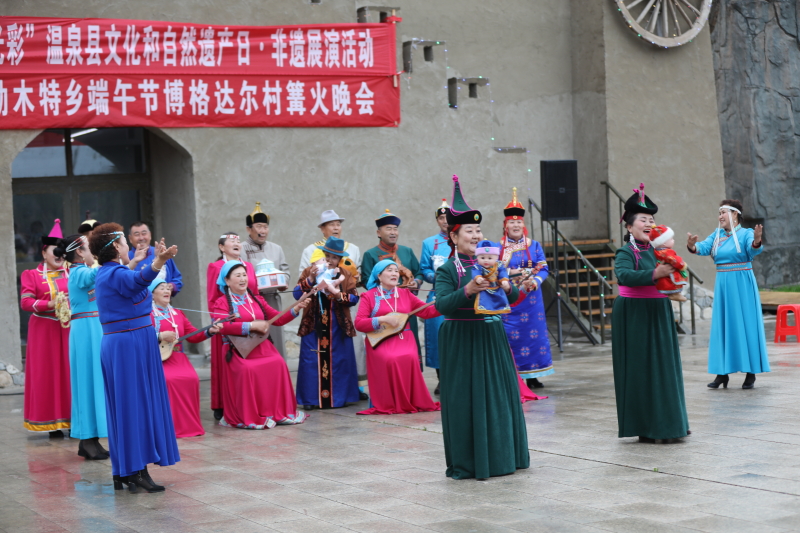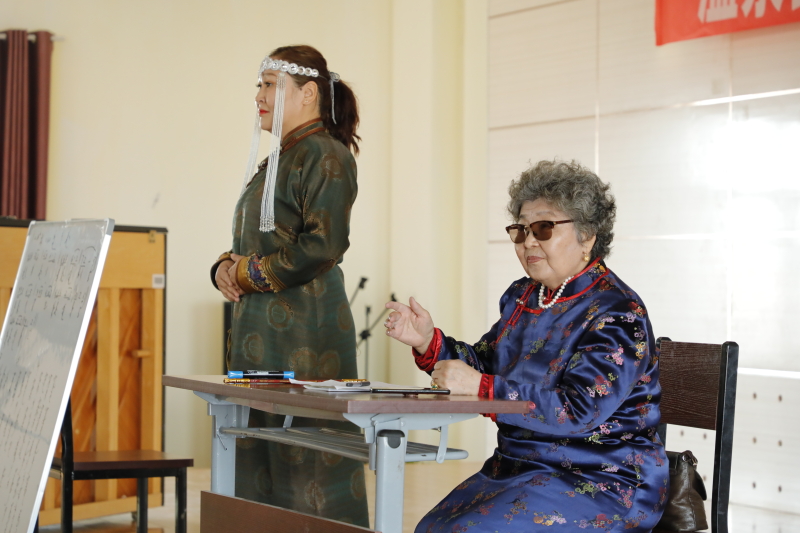Shiliuyun-Xinjiang Daily (Reporter: Yin Lu) news: On October 13, 2023, 73-year-old Jiang Gu performed a folk song while playing Topshur (a stringed musical instrument of the Mongolian ethnic group in Xinjiang), demonstrating to the students of the intangible cultural heritage training class in Wenquan County, Bortala Mongolian Autonomous Prefecture, northwest China’s Xinjiang Uygur Autonomous Region.

Photo shows Jiang Gu in an intangible cultural heritage training class. (Photo provided by Shen Hai)
Jiang Gu is a representative inheritor of the national intangible cultural heritage project Mongolian folk songs (Mongolian short tunes in Wenquan County) in Xinjiang. When she was young, she was a valiant member of the Ulan herding team, riding horses over mountains and across grasslands to sing melodious songs and perform beautiful dances for farmers and herdsmen. Now, she is 73 years old, and she has become a teacher in an intangible cultural heritage training class, teaching folk songs to inheritors and enthusiasts of all ages.

Photo shows Jiang Gu teaches students in Wenquan County, Bortala Mongolian Autonomous Prefecture, northwest China’s Xinjiang Uygur Autonomous Region. (Photo provided by Shen Hai)
“I have been listening to my father sing folk songs since I was young. I learned to sing as well as to speak. It has become a part of my life and will be with me throughout my life." Jiang Gu not only sings Mongolian folk songs well, but also studies them thoroughly.
During nearly 40 years of singing in grassland pastoral areas and later collecting folk songs at local places, Jiang Gu has been keeping a collection of folk songs and has successively collected and organized over 300 songs. In August 1989, she was recognized by the local government for her participation in the collection, organization, and publication of the epic Jianger, as well as her outstanding achievements in the transmission and singing of Mongolian folk songs.
She likes to listen to herdsmen singing at their homes. Whether it's a complete song or a few tunes, she will carefully record them, so that materials of folk art can be preserved," said Shen Hai, the head of the Intangible Cultural Heritage Office of the Culture, Sports, Radio, Television, and Tourism Bureau of Wenquan County.
Mongolian folk songs can be divided into long and short tunes. Compared to the strong narrative and meaningful expression of long tunes, short tunes have a bright rhythm and lively style, which is easy to learn and sing, and can help artists express their thoughts about life, love, and ideals strongly.
“In the years of collecting folk songs, I found that most of the short-tune folk songs in Wenquan County were improvised. Herdsmen often sing their own words to express their feelings based on classical melody,” Jiang Gu said. Even now, this improvisation is still popular, and many young short-tune singers add modern lyrics to traditional songs, making them refreshing to listeners. This is also why short-tune folk songs are very popular among people.

Photo shows performers sing short-tune folk songs at the Intangible Cultural Heritage Exhibition in Wenquan County, Bortala Mongolian Autonomous Prefecture, northwest China’s Xinjiang Uygur Autonomous Region. (Photo provided by Shen Hai)
Jiang Gu has published her personal folk song collection Eternal Melody, in which many classic songs have been covered many times by young short-tune singers, and "Sawurdingding, Sawurden" is one of them. In recent years, the playing and singing program of Topshur created based on this song has been popular in many cultural performances and festival activities. It cleverly combines three national-level intangible cultural heritage representative projects, Mongolian short-tune folk songs, Topshur, and Sawurden, achieving creative transformation and innovative development.
In the past ten years, Jiang Gu has devoted herself wholeheartedly to the work of cultivating inheritors. Influenced by her father and the teacher of the Ulan herding team, she attaches great importance to inheritance. She cherishes every opportunity to discover talent and values every student who comes to learn. Through the training program for intangible cultural heritage inheritors at the Cultural Center of Wenquan County and the activities of intangible cultural heritage in schools, communities, and rural areas, thousands of students have been trained, with some of them becoming representative inheritors in Xinjiang.

Photo shows Jiang Gu leads a student to perform. (Photo provided by Shen Hai)
Until now, there have been college students from various universities across the country coming here to learn short-tune folk songs from Jiang Gu every year. "I don't want any reward for teaching them to sing, as long as they are willing to learn and sing well, and are willing to tell more people the history and stories behind these folk songs.”
(A written permission shall be obtained for reprinting, excerpting, copying and mirroring of the contents published on this website. Unauthorized aforementioned act shall be deemed an infringement, of which the actor shall be held accountable under the law.)









